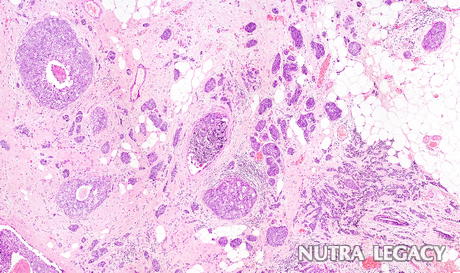4 Symptoms of Adenocarcinoma
Adenocarcinoma is a cancer that develops in glandular tissue. While its most often affects the lungs, adenocarcinoma is also often found in the colon, stomach and prostate as well as other vital organs. While its severity can range from treatable to fatal, there are several common symptoms that can indicate that you have adenocarcinoma. By noticing these symptoms and taking action early you have the best chances of beating the cancer and living a healthy life. Below are four common symptoms that reach across all types of adenocarcinoma.

1.Bleeding
When we say bleeding we do not mean it in just one sense. Bleeding can range from simple bruising to internal bleeding. If you ever notice blood in your urine or stool, or if you are coughing up blood, this could be a sign of a serious illness. Other major sites for internal bleeding include vaginal bleeding, nosebleeds and bleeding gums. Any form of internal bleeding or continual bruising should be brought to a doctor’s attention. While bleeding does not necessarily mean you have adenocarcinoma, it is one of the main symptoms and could also be a sign of a serious blood disorder.
2.Lump
Any unusual lump on your body should be checked by a medical professional. While a lump could be something as benign as a cyst, swollen lymph node or a simple injury, it could also be a sign of something much more serious. Either way, be on the safe side and have it checked since early detection can mean the difference between life and death.
3.Acute or Chronic Pain
While we all experience pain in our daily lives, any acute or chronic pain that is persistent should needs medical attention. Pain is often a sign of a greater underlying problem and it is your body’s way of telling you that something is not right. Whether you experience a sharp pain, numbness, or a burning sensation, make sure to have it checked by a doctor. Since is serious consistent pain is associated with adenocarcinoma you want to rule any form of cancer out immediately.
4.Lung Discomfort
Since lung cancer accounts for over 40% of adenocarcinoma cases it is important to address some of the symptoms of lung discomfort. If you experience shortness of breath, chronic coughing or changes in your voice these can all be signs of adenocarcinoma. Since many lung adenocarcinomas go unchecked until they are in the late stage, it is essential to seek medical attention immediately if you experience any of these symptoms.
While there are many other symptoms, these are the four main broad categories of adenocarcinoma symptoms. Even if your symptoms turn out to be something minor, it is better to be safe than sorry. Cancer is so prevalent in the United States, and around the world, that every precaution must be taken to protect you from this deadly disease.
For more information on adenocarcinoma cancer click here.


The information supplied in this article is not to be considered as medical advice and is for educational purposes only.
|
 3 Mar 2011 3 Mar 2011 |
